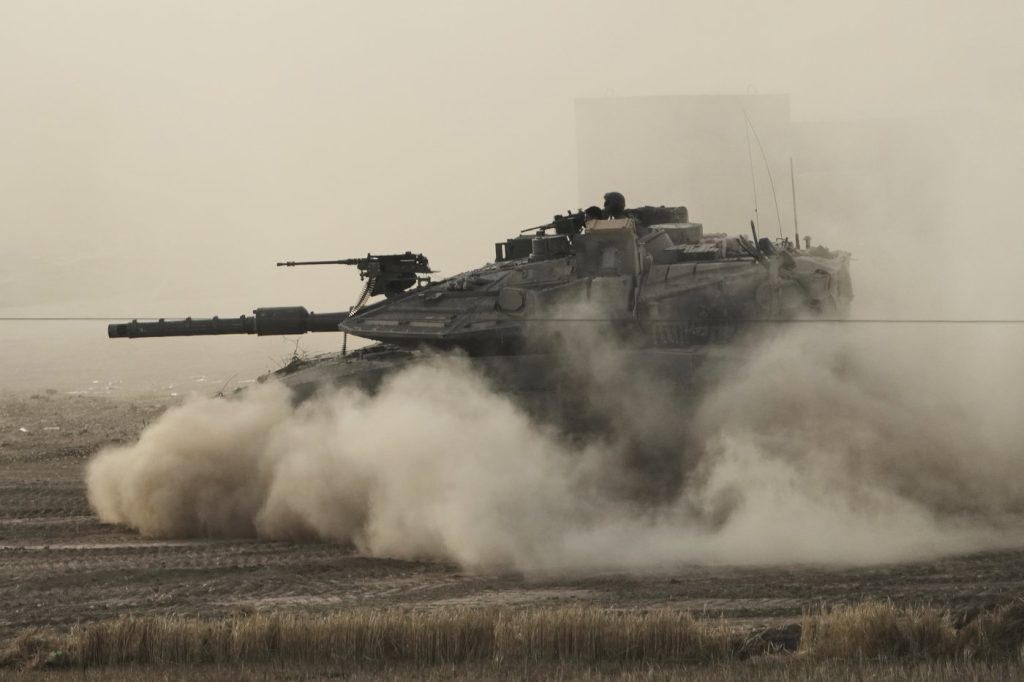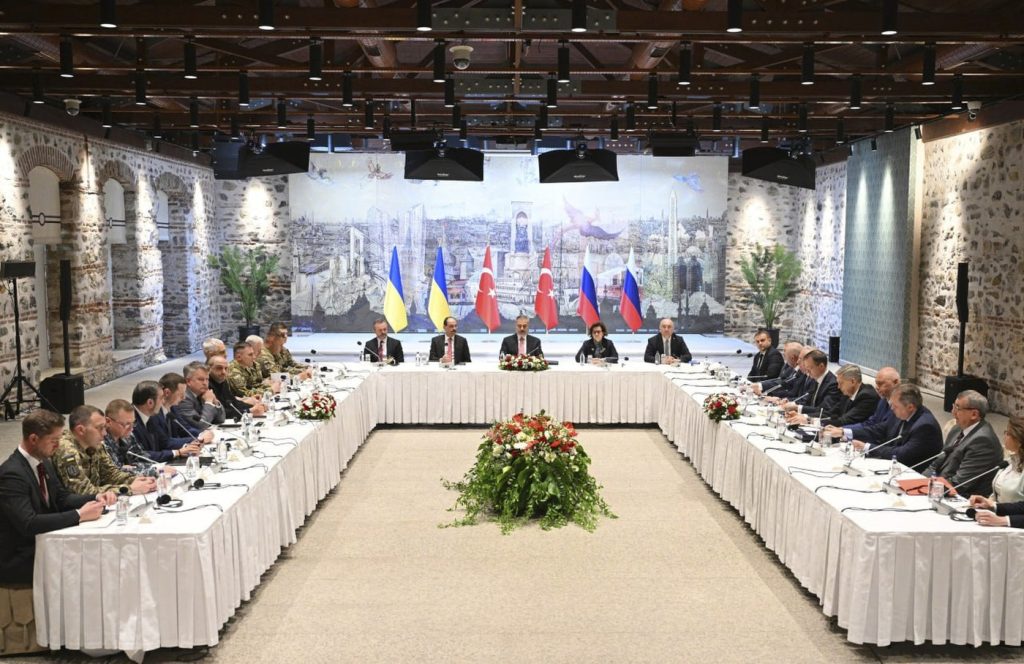DEIR AL-BALAH, Gaza Strip (AP) — In a significant escalation of hostilities, Israel conducted dozens of airstrikes across the Gaza Strip on Friday, killing at least 108 individuals, primarily women and children, according to local health officials. These strikes have been characterized by Israeli officials as a precursor to a more extensive campaign aimed at pressuring Hamas to release hostages taken during the conflict that erupted following an attack by the militant group on October 7, 2023.
In addition to the strikes in Gaza, Israeli forces targeted two ports in Yemen, believed to be used by the Houthi militant group for weapons transfers. These strikes resulted in the death of at least one person and injuries to nine others. The airstrikes in Gaza followed several days of intensified attacks, which had already claimed over 130 lives, as reported by the Gaza Health Ministry, a body that does not differentiate between civilian and combatant casualties.
The bombardments occurred while U.S. President Donald Trump concluded his visit to the region, which included stops in three Gulf states but notably omitted Israel. There had been widespread anticipation that Trump's trip might foster ceasefire discussions or enable the resumption of humanitarian aid to Gaza, which has been severely restricted for over two months. The Trump administration is also attempting to negotiate a nuclear deal with Iran, a nation that supports various anti-Israel groups, including Hamas and the Houthis.
President Trump commented on the situation in Gaza during his trip, expressing concern for the ongoing humanitarian crisis, stating, "A lot of people are starving. A lot of people are — there’s a lot of bad things going on." The strikes resulted in the deaths of 31 children and 27 women, with hundreds more reported wounded, as indicated by the Gaza Health Ministry.
In southern Gaza, significant airstrikes targeted the outskirts of Deir al-Balah and Khan Younis. The Israeli military claimed these strikes successfully hit anti-tank missile positions and other military structures. Tragically, a grandfather and his three grandchildren were killed while attempting to flee the violence in Khan Younis, as reported by Dr. Ahmed al-Farra, head of pediatrics at Nasser Hospital. Meanwhile, northern Gaza saw civilians fleeing from the Jabaliya refugee camp and Beit Lahiya, with Israeli forces asserting that they had eliminated several militants in the area.
The devastation was palpable as dark smoke billowed over Jabaliya, with families escaping on donkey carts and by foot. One displaced individual from Beit Lahiya, Feisal Al-Attar, recounted the chaos, stating, “We got out of the house with difficulty, killing and death, we did not take anything.” Following the airstrikes in Yemen, Israeli Prime Minister Benjamin Netanyahu warned, “There will be more to come,” affirming a commitment to intensify military operations against Hamas.
Following the airstrikes, an unnamed Israeli official conveyed that the recent attacks in Gaza were part of preparatory actions leading to a larger operation if Hamas does not free the remaining 58 hostages taken during the October 7 assault. Prime Minister Netanyahu has been vocal about escalating measures against Hamas, intending to dismantle the militant organization that has governed Gaza for nearly two decades. His administration previously confirmed strikes targeting Mohammed Sinwar, the presumed leader of Hamas' military wing in Gaza.
Amidst the violence, families of hostages in Israel expressed sorrow over the increased airstrikes and called upon Netanyahu to collaborate with Trump's efforts to secure their loved ones' release. Since the onset of the October 7 conflict, Hamas has been responsible for killing over 1,200 individuals and abducting 251 others. Israel's retaliatory actions have seen over 53,000 Palestinians reported dead, with many being women and children.
The blockade of Gaza has now entered its third month, with civilians suffering dire consequences, including scarcity of food and medical supplies. A chaotic scene unfolded on Friday at a charity kitchen in Khan Younis where displaced individuals sought food amid a humanitarian crisis exacerbated by the blockade. Israel's restrictions aim to compel Hamas to return the hostages it holds.
Efforts for humanitarian assistance continue amidst the blockade, with new organizations expressing intentions to aid Gaza before the month concludes, although the broader humanitarian community remains skeptical of these alternatives' alignment with ethical principles.












